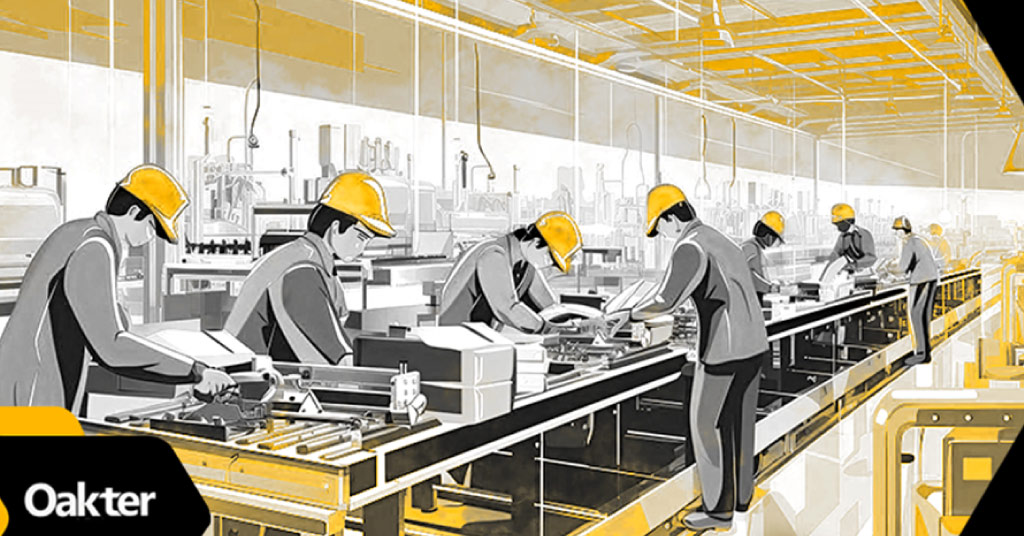
Introduction to Electromechanical Contract Manufacturing: Everything You Need to Know
The concept of Electromechanical Contract Manufacturing (ECM) has become increasingly vital for businesses seeking efficient and cost-effective solutions to meet their manufacturing needs in today’s industrial landscape.
Whether you’re a tech giant, a medical device company, or an emerging startup, understanding the ins and outs of this contract manufacturing approach can significantly impact your product development and production processes.
In this comprehensive guide, we will delve into the world of Electromechanical Contract Manufacturing, covering everything from its fundamental definition to the latest trends shaping its future.
What is Electromechanical Systems?
Electromechanical systems denote a fusion of electrical and mechanical components working together to perform specific functions.
These systems are found in everyday devices like printers, washing machines, and even sophisticated equipment such as MRI machines and aerospace control systems.
Some of the examples of electromechanical devices include servomotors, sensors, actuators, switches, and relays.
What Are the Key Components and Technologies Involved?
Electromechanical systems incorporate various components, such as microcontrollers, motors, and gears, all interconnected through intricate circuitry.
Advancements in microelectronics, miniaturisation, and sensor technology have revolutionised the capabilities of these systems, making them more precise, reliable, and versatile.
Electromechanical Contract Manufacturing: An Outline
Electromechanical Contract Manufacturing refers to outsourcing the production of electromechanical devices and systems to specialised contract manufacturers.
Contract manufacturers or electronic manufacturing service (EMS) providers offer comprehensive solutions ranging from design and prototyping to production, quality control, and distribution.
India aims to increase its electronics manufacturing capability to INR 24 Lakh Crore by 2025-2026, which will help create more than 10 lakh jobs.
What Are the Advantages of Outsourcing Electromechanical Manufacturing?
Outsourcing Electromechanical Manufacturing brings numerous benefits:
1. Speed to Market
Contract manufacturers have efficient production lines, enabling faster time-to-market for products.
2. Quality Assurance
Contract manufacturers adhere to stringent quality control measures, delivering superior product quality.
3. Global Reach
Manufacturers often have a global footprint, facilitating access to international markets.
4. Reduced Capital Expenditure
Companies save on capital investments in manufacturing facilities and equipment.
Why Companies Choose Electromechanical Contract Manufacturing?
Several compelling reasons drive the decision to embrace the ECM method:
1. Cost Efficiency
Outsourcing production to a contract manufacturer often reduces operational costs, as these companies have the infrastructure and expertise to streamline manufacturing processes.
2. Focus on Core Competencies
Companies can concentrate on product design, marketing, and innovation while leaving the manufacturing complexities to experts.
3. Access to Expertise
Contract manufacturers possess specialised knowledge and experience in electromechanical systems, ensuring high-quality production.
4. Scalability
Manufacturers can quickly scale production up or down based on market demand, minimising risks during volatile market conditions.
What Are the Common Industries That Utilise Electromechanical Contract Manufacturing?

Electromechanical Contract Manufacturing serves a wide range of industries, including but not limited to:
1. Aerospace and Defense
Critical aviation and defence applications systems rely on electromechanical components for safety and functionality.
2. Medical Devices
Precision and reliability are paramount in medical equipment, making contract manufacturing an ideal choice.
3. Consumer Electronics
The rapid pace of innovation in the consumer electronics industry benefits from contract manufacturing’s agility.
4. Automotive
Electromechanical components enhance vehicle performance, from infotainment systems to advanced driver-assistance systems (ADAS).
5. Industrial Automation
Automation systems rely heavily on electromechanical components to optimise manufacturing processes.
How Electromechanical Contract Manufacturing Works?
Electromechanical Contract Manufacturing is a well-structured process that ensures seamless production from concept to delivery. The steps involved in this process include:
Step 1. Selecting the Right Contract Manufacturer
The journey begins with choosing a contract manufacturer aligning with your needs, industry, and project scope. Compatibility in terms of capabilities, experience, and infrastructure is crucial.
Step 2. Initial Consultation and Project Planning
Once a contract manufacturer is chosen, the next step involves detailed discussions about project goals, timelines, budget constraints, and technical specifications. Clear communication at this stage is pivotal to project success.
Step 3. Design and Engineering Phase
This phase involves collaborative efforts between your team and the contract manufacturer’s engineers to refine product designs, select materials, and optimise manufacturing processes. The aim is to create a feasible and cost-effective production plan.
Step 4. Prototyping and Testing
A prototype is developed and tested for functionality and quality before full-scale production. Any necessary refinements are made at this stage.
Step 5. Production and Quality Control
The contract manufacturer then initiates mass production with the prototype approved. Quality control measures are implemented throughout manufacturing to ensure that each product meets or exceeds industry standards.
Step 6. Logistics and Distribution
Once ready, the products are efficiently packaged and prepared for shipping. Contract manufacturers often have well-established logistics networks to ensure timely delivery to the desired destinations.
Electromechanical Contract Manufacturing: Challenges and Risks
Despite its many advantages, Electromechanical Contract Manufacturing does come with some inherent challenges and risks:
1. Supply Chain Disruptions
Global events such as pandemics, natural disasters, or geopolitical issues can disrupt the supply chain, impacting production timelines and costs.
2. Quality Control Issues
Maintaining consistent quality across large production volumes can be challenging. Vigilant quality control measures are essential to avoid defects and recalls.
3. Intellectual Property Concerns
Sharing sensitive design and technology information with contract manufacturers poses risks of intellectual property theft or unintentional leaks.
4. Regulatory and Compliance Challenges
Different industries have distinct regulatory requirements. Ensuring compliance with these regulations is crucial to avoid legal issues.
Some Future Trends in Electromechanical Contract Manufacturing?
The industry is witnessing exciting developments that are likely to shape the future of Electromechanical Contract Manufacturing:
1. Advancements in Electromechanical Technologies
Integrating advanced technologies like artificial intelligence, IoT connectivity, and miniaturised components drives innovation in electromechanical systems.
2. Industry-specific Innovations
Customisation and specialisation are becoming more prevalent. Contract manufacturers are tailoring their services to meet the unique needs of specific industries.
3. Sustainability and Green Manufacturing Practices
Environmental concerns are shifting toward sustainable manufacturing processes, including recycling, energy-efficient production, and reduced waste.
Innovate, Create, Collaborate With Electromechanical Contract Manufacturing
We’ve explored the world of Electromechanical Contract Manufacturing, from its foundational concepts to its practical applications and challenges. As technology advances, the importance of contract manufacturing in modern industry cannot be overstated.
Whether you’re a startup aiming to bring a groundbreaking product to market or an established company seeking efficiency and cost-effectiveness, Electromechanical Contract Manufacturing offers a pathway to success.
By partnering with experienced contract manufacturers like Oakter, you can ensure that your electromechanical products meet the highest quality and performance standards. We are an advanced Indian ODM shipping 500k+ products per month.
Contact us today to discuss how we can bring your innovative ideas to life and drive your business forward!

